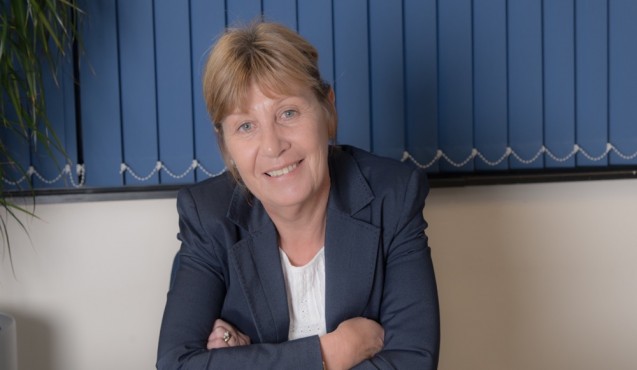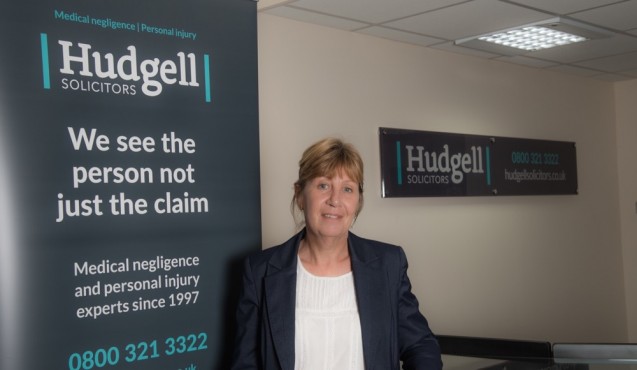Expert Interview: Lawyer Jane Woodcock Shares Her Unlikely Career Path

Our American readers should also note that, given that the education system here differs from the system in the U.K., they can’t follow the letter of Woodcock’s advice – but the more important thing here is the spiritof the advice, and that should be valuable to everyone, no matter their career or their geographical location.
Simon Wilson: What made you decide against going through university? Do you regret not going to university? What are the benefits of not going to university?
Jane Woodcock: I was a headstrong 16-year-old when I left school after O levels and don’t think I even considered going to university. Regrets – possibly in terms of widening horizons, but none in terms of where my career path has led me since. I doubt that I could have achieved more than I have even had I attended university.
The benefit of not going to university and instead studying for legal executive examinations while in employment in legal practice is that the knowledge gained on a practical level from working files and from working with and being mentored by experienced staff is invaluable and something that simply cannot be achieved through the university route.
SW: What alternative route did you take to get into law?
JW: As I say, I studied for the Institute of Legal Executives examinations, qualifying pretty quickly as an associate and then going on to take the fellowship examinations, which at the time were said to be equivalent to degree standard examinations, and I presume still are. I got a distinction or two and because I was too young to be made a fellow. There was a qualifying employment period of five years. I think had to wait about 18 months to get the formal title.
SW: What subjects did you take at school? Did these help you towards a role in law?
JW: I attended a grammar school. Standard maths, English, and science-based subjects, history and geography, and we had Latin classes – although I can’t pretend they have particularly shaped my life since. If anything, I probably excelled in English and history, which probably had a bearing. Being blessed with something of a photographic memory also helped a bit.

Jane Woodcock
SW: Have you had any on-the-job training? If so, what did it involve and how has it prepared you for your role?
JW: As above, I had on-the-job-training from the beginning and eventually got the hang of it well enough to train other people.
SW: What are the biggest challenges that you have faced in your career so far?
JW: Difficult question. I have been qualified for more than 30 years now! At the beginning, the biggest challenge was to gain acceptance, as a female, into the world of civil litigation, which was very much a male domain. From memory, there were about 33 separate firms practicing in Hull at the time, and only myself and one other female working in the civil litigation field at anything like a fee-earner level. Times have changed very considerably since then, and women may well now outweigh men in this field.
The challenge was therefore to gain the acknowledgement and respect of not only fellow litigators, but also counsel and judges – which I think I did.
SW: Where do you see yourself in five years’ time?
JW: Retired and sitting in the sun!
SW: Do you have any role models or mentors who have inspired your career choices so far?
JW: I qualified as a fellow while working for a firm where I did defense work (i.e., the opposite of what I do now). I ended up staying for 13 years. I worked with/for a guy called John Bryers. Without exaggeration, I would not be where I am now without the guidance this man gave me. Without exaggeration, he is probably the kindest and most genuine person I have ever met.
So, I got lucky, and in a sense, luck does play a part in this type of career – being in the right place at the right time, someone spotting your talent, landing that one case that develops into something that makes legal precedent.
SW: What key skills do you think you need for your role?
JW: An eye for detail, good memory, good knowledge and understanding of the law, patience, the ability to be a good listener and good communicator, common sense, a sense of humor, and the ability to withstand stress – very significant stress at times – and be prepared to lose sleep in the literal sense.

Jane Woodcock
SW: What advice would you give someone aspiring to a career in law who has not been to university and is not planning to do so?
JW: Think about getting work placement in a firm. Think about taking even a very junior role in a firm to get a foot in the door. Many legal executives have started their careers in secretarial roles or similar.
Also, just to put matters into perspective, there is very little indeed that a fellow of the Institute cannot do which a solicitor can – including being a partner in a firm and having a right of audience in the higher courts.

